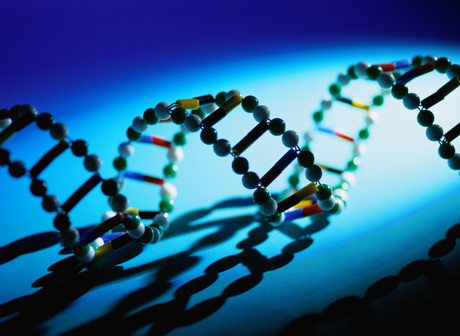One step closer to tailored cancer treatments

The goal of tailoring cancer treatments for individuals based on their genetic make-up is one step closer thanks to a comprehensive global study conducted by Cancer Council Victoria and University of Melbourne researchers, with an international cast of collaborators in Europe, Australia, Asia and Africa.
Previous population-based family studies had indicated a clinically important association between an increased risk of breast cancer and mutations in a handful of genes. Published in the Journal of Medical Genetics, this new report aims to estimate the relative risks associated with specific rare variants in the genes PALB2, CHEK2 and ATM. These genetic changes may be as indicative of the risk of developing breast cancer as the more common BRCA1 and BRCA2 mutations.
Conducted across four continents, this international collaboration examined genetic mutations in nearly 200,000 people who had participated in studies related to breast, prostate and ovarian cancer studies. This is the first time that rare genetic mutations have been studied on this scale.
Led by Professor Melissa Southey and Associate Professor Roger Milne, the research looked at 120 studies and confirmed that mutations in the PALB2 and ATM genes greatly increase the risk of breast cancer, while mutations in the CHEK2 gene shows a moderate risk.
It is hoped that these findings will lead to new genetic screening, counselling and clinical guidelines, as determining which genetic changes are connected to cancer risk is a major challenge in cancer research.
“Our previous studies highlighted these as genes of interest, and this has led to women being screened for changes to these genes, but we haven’t had enough information to inform advice,” said Professor Southey, from the Victorian Comprehensive Cancer Centre. “It’s only by screening the DNA of tens of thousands of people in different countries that we have gained a clearer picture of their significance in causing cancers.”
Professor Southey explained that the latest genetic testing technology can look for mutations in multiple genes from a single sample, saying, “PALB2 and ATM can now be confidently included in testing.” She added that large-scale global studies are essential to assess the risks associated with these rare mutations that may be missed in smaller local studies.
“The same mutation might cause breast cancer in one person and a different cancer in another, or might cause multiple cancers in the same person, and all these cancers might respond to the same drug,” said Associate Professor Milne, deputy director of cancer epidemiology at Cancer Council Victoria. “Ultimately, the more we know about the different mutations, the closer we will get to personalising treatments.”
Another 2000 rare genetic variants will be researched by Professors Southey and Milne over the next year.
Personality influences the expression of our genes
An international research team has used artificial intelligence to show that our personalities...
Pig hearts kept alive outside the body for 24 hours
A major hurdle for human heart transplantation is the limited storage time of the donor heart...
Breakthrough antibiotic for mycobacterial infections
The antibiotic candidate, named COE-PNH2, has been optimised to target Mycobacterium...







